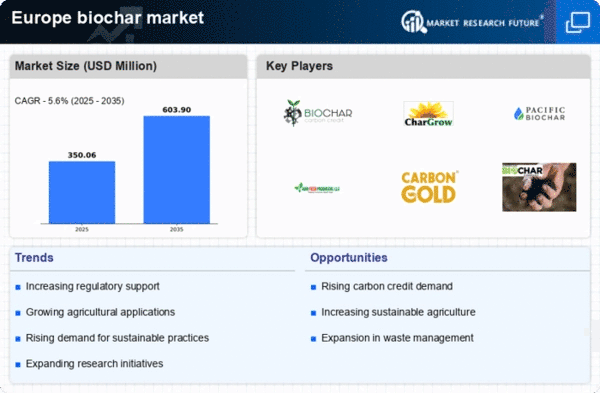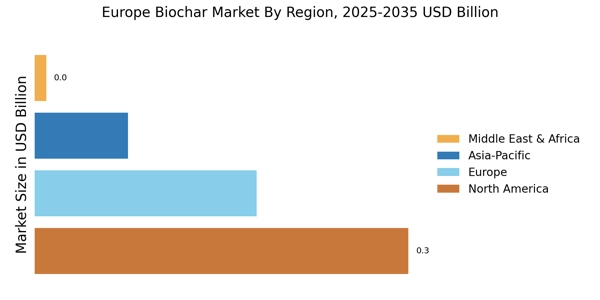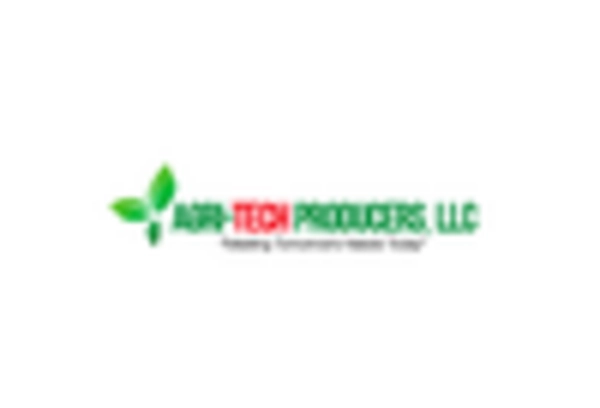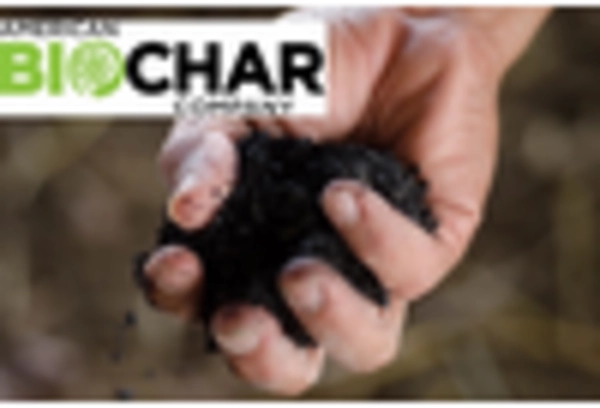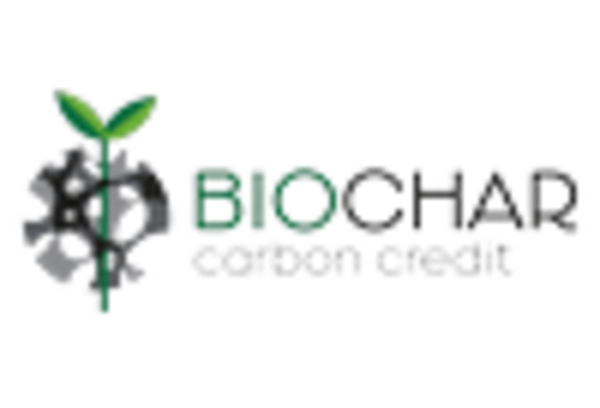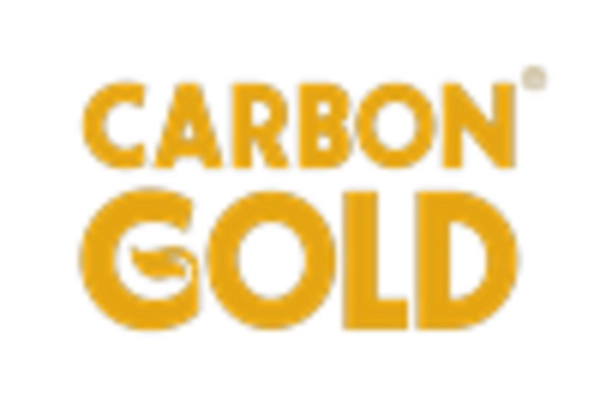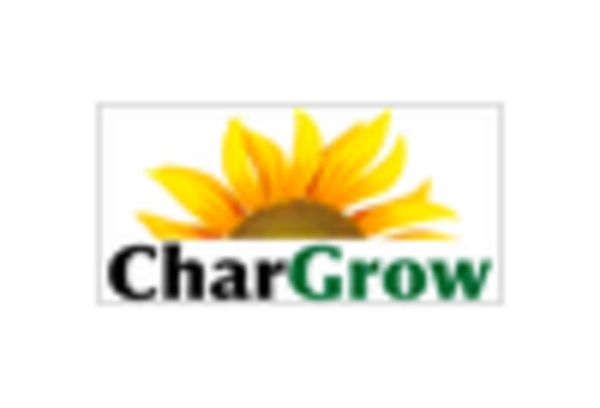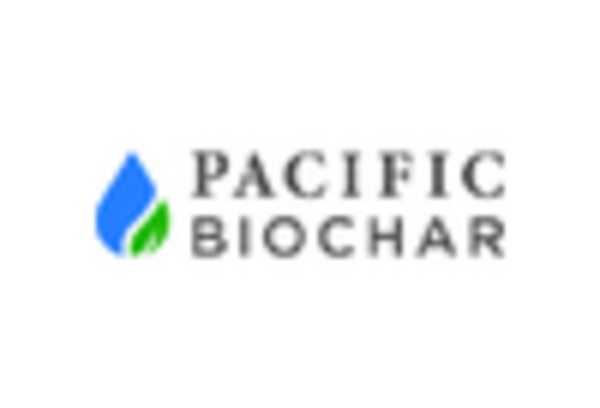Germany : Strong Demand and Innovation Drive Success
Key markets include states like Bavaria and North Rhine-Westphalia, where agricultural innovation is prevalent. The competitive landscape features major players like Carbon Gold Ltd and Biochar Solutions Inc, which are actively expanding their operations. Local dynamics are characterized by a collaborative environment among research institutions and businesses, fostering innovation. Biochar applications in soil enhancement and carbon offsetting are gaining traction, positioning Germany as a leader in the European biochar market.
UK : Sustainability Drives Market Expansion
Key markets include England, particularly in regions like East Anglia and the Midlands, where agriculture is a significant industry. The competitive landscape features players like Carbon Gold Ltd and Agri-Tech Producers LLC, which are expanding their market presence. The local business environment is supportive, with various grants and funding opportunities available for biochar projects. Applications in horticulture and landscaping are also emerging, further diversifying the market.
France : Innovation and Regulation Fuel Growth
Key markets include regions like Occitanie and Nouvelle-Aquitaine, where agricultural practices are evolving. The competitive landscape features companies such as Biochar Now LLC and local startups focusing on innovative biochar production methods. The business environment is dynamic, with a growing number of partnerships between agricultural cooperatives and biochar producers. Applications in viticulture and forestry are also gaining traction, enhancing the market's diversity.
Russia : Potential for Growth and Innovation
Key markets include Moscow and St. Petersburg, where urban agriculture is gaining popularity. The competitive landscape is still nascent, with few established players, but opportunities exist for international companies to enter the market. Local dynamics are characterized by a growing awareness of environmental issues, leading to increased interest in biochar applications. The potential for biochar in forestry and land reclamation is also being explored, indicating future growth avenues.
Italy : Sustainable Practices Gain Traction
Key markets include regions like Tuscany and Puglia, where traditional agriculture is prevalent. The competitive landscape features local producers and international players like Terra Char, which are expanding their offerings. The business environment is supportive, with various funding opportunities available for sustainable agriculture projects. Applications in horticulture and landscaping are also emerging, further diversifying the market's potential.
Spain : Innovative Solutions for Agriculture
Key markets include Andalusia and Catalonia, where agriculture is a significant industry. The competitive landscape features local companies and international players like CharGrow LLC, which are expanding their market presence. The local business environment is supportive, with various grants and funding opportunities available for biochar projects. Applications in horticulture and landscaping are also emerging, further diversifying the market.
Rest of Europe : Regional Variations in Demand
Key markets include countries like Poland and the Netherlands, where agricultural innovation is prevalent. The competitive landscape features a mix of local producers and international players, creating a dynamic market environment. Local dynamics are characterized by varying levels of government support and consumer awareness, leading to diverse applications in agriculture, landscaping, and waste management. The potential for biochar in carbon offsetting and soil enhancement is also being explored, indicating future growth avenues.


